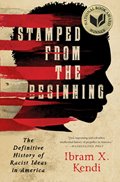2020 APM Speakers
-
Dr. Cindy BlackstockExecutive Director, First Nations Child and Family Caring Society of Canada
Hokenstad International Lecture—Thursday, November 19
Colonialism in 2020: Seeking Equity for Nations Within Nations
We live in a world where First Nations continue to be the victims of violence inflicted on them by the nations in which they are geographically located. This is the ongoing legacy of settler colonialism. This lecture will discuss this situation and also offer some examples of how social workers can successfully advocate for the human rights of First Nations peoples. It will connect work being carried out around the world in the defense of the human rights of First Nations and discuss the role of social workers in making positive social change to advance human rights and social justice, including using cultural equity as a basis for reconciliation. The Hokenstad Lecture is generously supported by the CSWE Commission on Global Social Work Education.
About Dr. Blackstock
A member of the Gitxsan First Nation, Cindy is honored to serve as the executive director of the First Nations Child and Family Caring Society and a professor at McGill University’s School of Social Work. She has over 30 years of experience working in child welfare and Indigenous children’s rights and has published more than 75 articles on topics relating to reconciliation, Indigenous theory, First Nations child welfare, and human rights. Cindy was honored to work with First Nations colleagues on a successful human rights challenge to Canada’s inequitable provision of child and family services and failure to implement Jordan’s Principle. This hard-fought litigation has resulted in hundreds of thousands of services being provided to First Nations children, youth, and families.
She recently served on the Pan American Health Commission on Health Equity and Inequity and fundamentally believes that culturally-based equity is fundamental to meaningful reconciliation. Cindy is frequently sighted in the company of the Caring Society’s reconciliation Am-bear-rister, Spirit Bear, engaging children in meaningful actions to implement the TRC Calls to Action. -
Ibram X. KendiAndrew W. Mellon Professor in the Humanities, Boston University
Plenary Lecture—Wednesday, November 18
How To Be an Antiracist: A Conversation With Ibram X. Kendi
This conversation will touch on the importance of civic engagement in fighting for racial justice, how to promote policies that support equity, and why hope is central to the antiracist movement. It will be moderated by CSWE President and CEO Darla Spence Coffey and CSWE Board Chair Saundra Starks.
About Ibram X. KendiIbram X. Kendi is the Andrew W. Mellon Professor in the Humanities at Boston University, and the founding director of the BU Center for Antiracist Research. He is a contributing writer at The Atlantic and a CBS News correspondent. Kendi is the 2020-2021 Frances B. Cashin Fellow at the Radcliffe Institute for Advanced Study at Harvard University.
He is the author of many books including Stamped from the Beginning: The Definitive History of Racist Ideas in America, which won the National Book Award for Nonfiction, and three #1 New York Times bestsellers, How to Be an Antiracist; Stamped: Racism, Antiracism, and You, co-authored with Jason Reynolds; and Antiracist Baby, illustrated by Ashley Lukashevsky. His next book, Be Antiracist: A Journal for Awareness, Reflection, and Action, will be released in October.
For more information on this speaker please visit www.prhspeakers.com(Opens in a new window).
Books for Purchase (Opens in a new window)
(Opens in a new window) (Opens in a new window)
(Opens in a new window) (Opens in a new window)
(Opens in a new window) -
Dr. Dexter R. VoisinDean and Professor, University of Toronto's Factor-Inwentash Faculty of Social Work
Carl A. Scott Memorial Lecture—Monday, November 16
America the Beautiful and Violent: The Role of Social Work in Addressing Anti-Black Racism
America is one of the wealthiest and most powerful countries in the world. Its cultural artifacts penetrate and inhabit the imaginations and lives of people worldwide in the form of Hollywood films, pop music, social media, and sports. Many of these contributions have been made by African Americans. But racism is America’s birth defect, and America has continued to struggle and falter with her sparring realities and separate and unequal existences based on race. A racial caste system has been modernized but never really dismantled, with millions of African American families growing up in the shadow of the stars and stripes. The social work profession has also struggled with its dueling legacies of social control and social change. This lecture will highlight what it means for social work to more fully adopt an anti-Black racism framework, especially within the context of COVID-19 health disparities and the growing global conversations concerning racial reckoning.
About Dexter R. Voisin, PhD
Professor Voisin is the Dean of the University of Toronto’s Factor-Inwentash Faculty of Social Work, and the Sandra Rotman Chair in Social Work. Prior to his appointment at U of T, he was Professor at the School of Social Service Administration at the University of Chicago for two decades. During this time, he was a Faculty affiliate at both the Center for the Study of Race, Culture, and Politics and the Center for Health and the Social Sciences. He was also the Director of the STI/HIV Intervention Network (SHINE) and Co-Director of the Chicago Center for HIV Elimination (CCHE).
Voisin’s scholarship examines the impact of structural, neighborhood and police violence on the life chances and behavioral trajectories of urban youth and the protective factors that protect youth in the presence of such adversities. His research demonstrates that exposure to structural and neighborhood violence is correlated with youth mental health problems, school failure, negative peer networks, and high rates of HIV-related risk behaviors. His latest project is a book entitled America the Beautiful and Violent: Black Youth and Neighborhood Trauma in Chicago, which was published by Columbia University Press in August 2019.
Recognized as one of the most influential and cited Black scholars in top tier schools of social work in North America, Voisin has published more than 145-peer reviewed publications and secured more than 10 million dollars in research funding.
Voisin has more than 28 years of post-M.S.W. clinical experience in the areas of substance abuse, adult psychopathology, and adolescent and family therapy. He earned his B.A. (psychology, cum laude) from St. Andrews College, M.S.W. (practice) from the University of Michigan, and Ph.D. (advanced practice) from Columbia University School of Social Work. -
Laura Burney NissenPresidential Futures Fellow and Professor, Portland State University
Special Lecture—Tuesday, November 17
Social Work Education and Practice in Postnormal Times: Using Futures Thinking to Move the Field and the World Forward
What does it look like to be "ready" for what happens next? Postnormal times refers to a time when some of our old ways are falling away (not without a fight), new ones are being born, and everything feels out of balance. And many suggest—we are there. As we navigate uncertainty, volatility, and transition in the world around us in the months and years to come - what is social work's role in building the new world we aspire to?
Futures thinking and its affiliated practice, foresight, is a way of moving through uncertainty and unpredictable futures in ways that cultivate collective imagination, intelligence, and agility. Issues of racism and equity, climate change, rapidly proliferating technologies, predatory economics, misinformation campaigns, and a sea of both challenges and opportunities to build human health are but a few of the markers in the landscape of social work in the future. Our profession has an enormous potential role to play in participating in the healing and reimagining a better and more equitable world. But this can only happen if we evolve to meet the challenges ahead of us, as are other professions such as medicine, law and journalism. This session will challenge social workers and educators to find our "growing edges" in the learning and development work we need to do to be ready for the opportunities in the coming years.
About Laura Burney NissenFormer Dean and current Professor Laura Burney Nissen has been a member of the Portland State University (PSU) and School of Social Work community since 2000. She is currently the inaugural Presidential Futures Fellow at PSU. She began her tenure at PSU in a leadership role with the national Robert Wood Johnson Foundation initiative Reclaiming Futures, which still operates in the Regional Research Institute in the School of Social Work.
With a long-term commitment to innovative systems change, Laura has worked with futures practice and lenses throughout her career. Her research portfolio includes a focus on creativity and innovation in macro level social work systems change. She credits a futures lens with the extended and continuous success of the Reclaiming Futures initiative and its ability to energize and provide architecture to a complex and interdisciplinary juvenile justice reform effort extending a decade beyond its original demonstration phase.
She has brought futures thinking into the School of Social Work in the form of the first strategic plan at the school in its 55-year history. She is a foresight practitioner and a research fellow with the Institute for the Future and has spoken on futures thinking in social work and social change at the National Association of Deans and Directors of Schools of Social Work and in numerous social work education and community spaces. She has taught and done research in a variety of social work/social change practice areas including addiction practice, equity and social justice, social work and the arts, lifelong learning for social work, and macro social work. She is the founder of the Social Work Health Futures Lab. Follow Nissen on Twitter(Opens in a new window). For additional information about her work, please visit the Social Work Health Futures Lab website(Opens in a new window) and the Social Work Futures blog(Opens in a new window). -
Shalini KantayyaDirector
CODED BIAS
CODED BIAS follows MIT Media Lab researcher Joy Buolamwini’s startling discovery that many facial recognition technologies fail more often on darker-skinned faces and the faces of women, and delves into an investigation of widespread bias in artificial intelligence. APM is hosting two events for CODED BIAS.
Film Screening: 7:00 pm, Eastern, Wednesday, November 18
Q&A with Director Shalini Kantayya: 7:00 pm, Eastern, Thursday, November 19
Watch the film with APM attendees on Wednesday and submit your questions through the chat function for a Q&A with Kantayya the following night.

